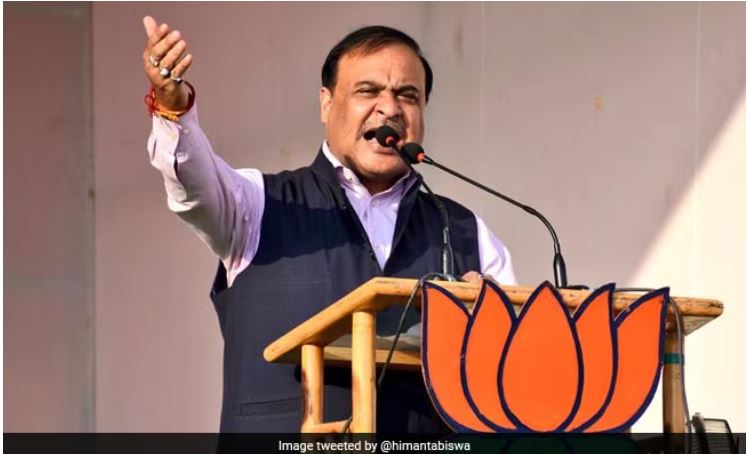Indian State Should Focus on Unconventional Methods: Jamal Nasir Baloch
Indian Politician Praises Resilience of Baloch freedom Struggle

DEHLI: In a striking political statement, Indian politician Himanta Biswa Sarma, Chief Minister of the north-eastern state of Assam, took to social media to express solidarity with the Baloch freedom movement. He traced its historical roots and highlighted the enduring struggle of the Baloch people against decades of political, economic, and cultural suppression by Pakistan.
In his post on X (formerly Twitter), Sarma recounted the turbulent history of Balochistan’s annexation in 1948, stating that the princely state of Kalat—representing much of modern-day Balochistan—had sought to retain its sovereignty after the end of British colonial rule.
Despite initial efforts at negotiation, Kalat was “forcibly annexed by Pakistan,” he wrote, sowing the seeds of long-standing resentment.
Sarma’s post went on to chronicle key moments of Baloch resistance, referencing major uprisings in 1958, 1962, 1973, and the early 2000s—all of which, he said, were driven by the Baloch people’s “political disenfranchisement, economic marginalisation, and cultural suppression.”
He further noted that Balochistan, despite being rich in natural resources, continues to suffer from chronic underdevelopment and systemic exploitation.
Particularly notable was Sarma’s reference to the 2006 killing of Baloch leader Nawab Akbar Bugti—a watershed moment that, according to him, reignited widespread calls for freedom and justice in the region.
Describing the Balochistan movement as a symbol of “an indigenous people’s enduring aspiration for dignity, rights, and control over their own destiny,” the Assam Chief Minister praised the “immense sacrifice, resilience, and unbroken spirit” of the Baloch people.
Following Sarma’s statement, the Chief Minister of Goa, Dr. Pramod Sawant, echoed similar sentiments, predicting that Balochistan will soon emerge as an independent nation.
Speaking at a public event, Sawant declared that Pakistan is on the brink of collapse and vowed that Prime Minister Narendra Modi would ensure “100 percent” retaliation for the Pahalgam attack.
Sawant also emphasised India’s secular character, contrasting it with Pakistan’s treatment of minorities. He cited the historical disintegration of Pakistan—referring to the creation of Bangladesh in 1971—as a precedent, suggesting that Balochistan could be next to break away.
He added that the Indian government has already asked Pakistani citizens to leave the country and affirmed that they will not be allowed entry into India until Pakistan ends its support for terrorism.









